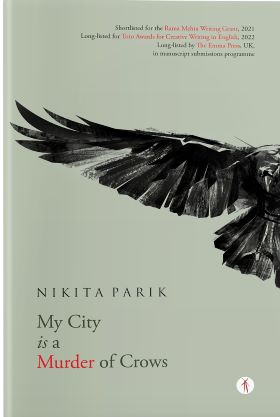
The city is a dream drafted in stone. A night descends and jerks it into existence. Somewhere, a heel-bone cracks, letting out a scream that is at once primal and prophetic. They are now trying to slap on a plaster over a fracture that is a permanent rupture on the exoskeletal structure of this city. The site of injury has swollen to the size of a pixelated child’s horror on seeing his father stay behind with a Kalashnikov. The skin is the color of gunshot screams spanning your reality and my horrified imagination. Oh but don’t you know? The city is a genetic reproductive schema: it is every city to ever exist. Everything is but one thing, just as one thing swells, wiggles out, and takes the form of everything. The pavements of this city are waiting to draw life-blood from the veins of another’s book-stocked windows. The cities inside our screens are waiting to know what amount of fibre- glassing will ease this intumescence.
This mouth is an Indian balcony
during the months
of saawan & bhaado: someone
tiptoes across it all day,
at the pretext of drying clothes.
Her lips mouthing devanagari delicately,
like a personal prayer
on the nightstand of deepest
slumber; hands holding
the book jacket like a scripture; mind
oblivious to the daughter
standing rooted across the room. A silence
starts to glow around us,
becomes a patronus keeping me
out, becomes a sphere
of light, becomes the sun: it is now
almost sacrilegious to intrude.
Nikita Parik’s debut book of poems is Diacritics of Desire (2019), followed by Amour and Apocalypse (2020), a novel in translation. Her third book, My City is a Murder of Crows, has just come out from Hawakal Publishers. She currently edits EKL Review.

Subscribe to our newsletter To Recieve Updates
Join our newsletter to receive updates